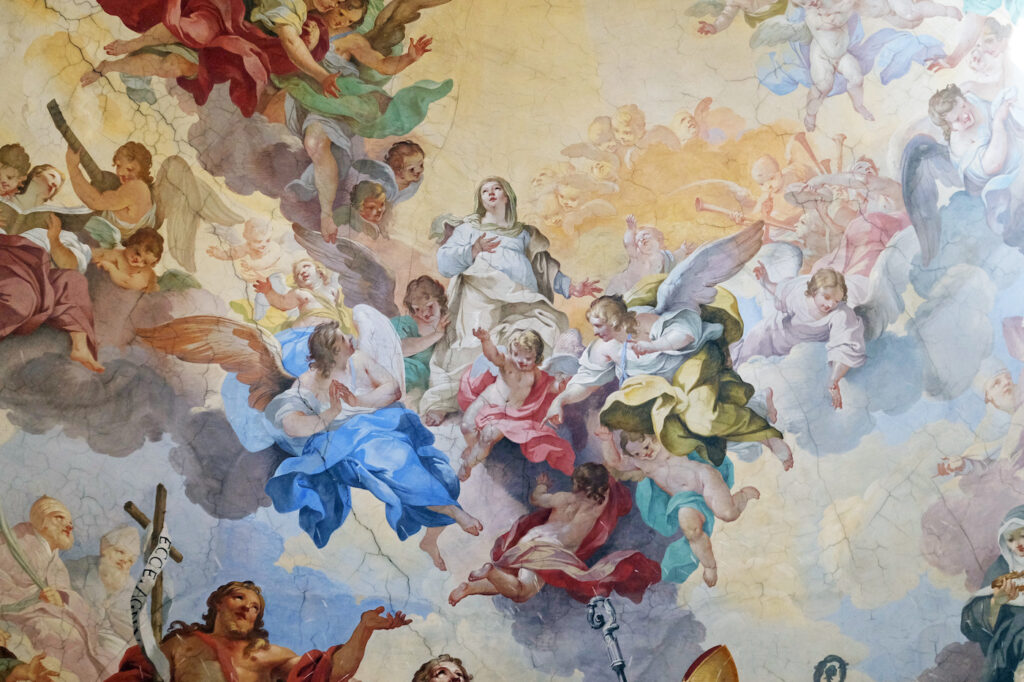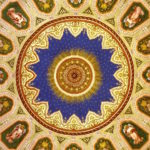Since 2008, two major trends in the United States have been much discussed but little compared: the declines in religion and in the humanities. The downward trend in religion, particularly Christianity, accelerated in 2008. As Pew research has shown, the percentage of Americans who identify as Christian has fallen from 77 percent to 65 percent, while the percentage of Nones has risen from 17 percent to 26 percent. This decline is particularly acute among Millennials, of whom only 46 percent identify as religious. Meanwhile, the decline of the humanities has accelerated at America colleges. Majors in the humanities have declined between 30 and 60 percent, depending on the department. Churches and humanities departments find themselves facing mergers, consolidations, and closures.
These trends, perhaps seemingly unrelated, are parallel manifestations of the same social ethos: our obsession with means and neglect of ends. For Jacques Ellul, a twenteeth-century Christian intellectual, forgetting ends is the defining trait of our modern technocracy that can only recognize what is efficient and useful. He writes in Presence in the Modern World (originally published in French in 1948) that “in our world, everything must serve, which is to say, exist as means. All that was formerly ‘useless’ or ‘gratuitous’ must submit itself to the necessity of ‘usefulness.’” What Ellul observed over seventy-five years ago is coming into fuller fruition today: if something isn’t a means (like religion and the humanities), and is therefore useless, it is discarded.
Of course, the useful is inherently teleological: calling something “useful” invokes the question “useful for what?” But modernity resists this question by multiplying means without any clear ends. We can see this exemplified in a recent Wall Street Journal poll indicating a growing prioritization of money (always a means) and a downplaying of nation, community, and God (ends). We live an infinite regress of usefulness with little sense of the point of our labors. In a world that only understands useful things, interest in humanities and religious faith (both of which consider human purpose) will inevitably decline.
We resist the question “for what?” because to think about ends requires not only deliberation but thinking. While deliberation is oriented toward doing things, thinking seeks to understand why we do things. Thinking forms the horizon of meaning, while deliberation enables us to choose among means available for fulfilling goals. When we reject thinking, we are left deliberating about means without understanding what they’re aimed at.
Start your day with Public Discourse
Sign up and get our daily essays sent straight to your inbox.Yet we all implicitly think we already know our life’s purpose (usually to maximize convenience and utility); therefore, we think life’s meaning doesn’t require serious thought. “Everyone,” as Ellul writes, “knows more or less the purpose that civilization pursues, and it seems completely pointless and outdated to pose this question.” My college students have worked hard getting impressive credentials since at least middle school and will continue to do so long after college. When I ask them where this is all going, they are befuddled. “This is just what you do,” they often answer. Anything else is impractical, unrealistic, and useless. They have been going their whole lives without asking or being asked “where to?” Asking such a question means stopping, thinking, and perhaps changing direction, all things that religion and humanities have us do. But our society has no interest in silence or pausing.
Stop Asking Questions
The collapse of teleology means that the humanities, the constellation of disciplines that ask what the direction of human life is, are unintelligible to our culture. But when questions about our purpose cease, we lose our entire frame of reference in day-to-day life. Perhaps one might criticize the humanities and argue that constantly probing life’s biggest questions is destabilizing. However, the humanities don’t proffer questions without answers, which would indeed lead to a confused paralysis. To study the humanities is to encounter competing answers that reflect the plurality of human existence. The student’s task is to think through these answers in dialogue with others. In them, students seek to understand which destinations seem good, true, and (most pointlessly of all) beautiful.
Such questioning is inimical to a culture obsessed with production and consumption. Our society, as Ellul puts it, fosters “total producers, [who] place all their efforts into the service of production” and “obedient consumers [who] swallow blindly all that the economy feeds to them.” Learning to question threatens this production and consumption. To seriously inquire is to pause in making and buying. Worse yet, the person who asks, “what is this for?” might realize that the purpose of human life is beyond production and consumption. For these reasons, humanistic inquiry is increasingly alien and inimical to our society of means without ends. Education turns away from questions of purpose and instead focuses exclusively on skills and career training.
To study the humanities is to encounter competing answers that reflect the plurality of human existence. The student’s task is to think through these answers in dialogue with others.
Stop Offering Answers
If humanistic inquiry is inimical to a culture of means, so too is religion, which develops its questions within a broader, transcendent horizon of meaning. We can turn to the Baltimore Catechism for an example of this changed horizon. The Baltimore Catechism—a standard American Catholic teaching text from the 1880s to the late 1960s—begins with a section “On the End of Man,” which famously asks” “Why did God make you?” In other words, it does more than ask about the purpose of human existence. It asks the human question in light of God’s purposes.
The catechism seeks to understand human meaning within the broader horizon of divine action. It answers its own question this way: “God made me to know Him, to love Him, and to serve Him in this world, and to be happy with Him forever in the next.” To participate in Christianity is to live for—as one is called—one’s end in light of the Creator’s purposes. Religion does not just offer answers, it moves the questions and answers into the intersecting horizon of God and humanity.
Our culture keeps us locked within the horizon of going, thus refusing questions of origin and end (as offered in the humanities), and the answers that place us on the horizon of transcendence (as offered in religion). The concomitant decline in humanities and religion is shaped by the deepening rejection of ends. Considering this concomitant decline in humanities and religion, what are Christian committed to both to do?
Our culture keeps us locked within the horizon of going, thus refusing questions of origin and end (as offered in the humanities), and the answers that place us on the horizon of transcendence (as offered in religion).
Renewing Christian Humanism
First, despite the overall declines in humanities and religion, the good news is that vibrant subcultures and communities are continuing to emerge. There is a burgeoning number of classical K–12 schools, Catholic studies and humanities programs at religious universities, centers for Christian thought at secular universities, and a growing number of thoughtful Christian publications such as The Lamp, Fare Forward, and Plough. When humanistic inquiry and Christianity work hand in hand, what results is a dynamism that unites resolute orthodoxy with the openness to thinking through the meaning of orthodoxy in the modern world. This union is the heart of our intellectual witness.
Communities that embrace Christian humanism explore human life in the light of divine purpose. The central human question is the one asked by Christ, “who do you say that I am?” (Mark 8:9). In affirming the Sonship of Christ, we also transform the question of humanity. To say that Christ is Son of God and son of man means that one views humanistic questions as Christological questions. If Christ is the union of God and humanity, then Christian humanism must pose questions and answers in light of a Christology.
Even though there are reasons for optimism, humanists and Christians face the grim realities: closed churches and empty seminars. Romano Guardini writes that in our world, “Loneliness in faith will be terrible. Love will disappear from the face of the public world.” To be committed to the humanities and to be committed to Christ is to experience a double loneliness. More universities will cancel the humanities and more churches will close. Centers of study and of prayer may be smaller and less prestigious than in the past, but the Gospel, poetry, philosophy, and the humanities in general are not about size or prestige.
Rather, they are about witnessing to a life beyond our contemporary malaise. Too often lonely, friendless, anxious, and depressed, young people need a path out of their pathless life. Bartolomé de las Casas wrote in the 1500s that unbelievers “are not wayfarers, but wanderers.” Wayfarers live life as a journey with a destination; wanderers are always on the move but with nowhere to go. Such wanderers surround us. Publicly living the questions and the Christological answers offers people the possibility of transitioning from wandering to wayfaring.
Centers of study and of prayer may be smaller and less prestigious than in the past, but the Gospel, poetry, philosophy, and the humanities in general are not about size or prestige.
A final note of hope, however, is that in Christianity we find the union of ends and means. As Ellul writes, “Jesus Christ, in his Incarnation, appears as God’s means for the salvation of human beings and for the establishing of God’s kingdom. But where Jesus Christ is, there also is this salvation and kingdom.” Christ is the means and the end, the way and the destination, the unity of this life and the next. What God commands us—to love Him, to serve Him in this life, and to be happy with Him in the next—He gives to us. And so for Ellul, “what counts are not our instruments and institutions, but ourselves, because it is we ourselves who are God’s instruments.” The destination is Christ, the way is Christ, and the church is both. To be Christian is to dwell in the graced union of ends and means by living like Christ on our way to Christ.
Our classrooms and churches may shrink amid our culture’s obsession with utility, but our task is to ponder human questions. Christians must do so in light of the Christology, and we must be “ready to give an answer (apologia) to everyone that asks the reason [logos] for our hope” (1st Peter 3:15). Posing these kinds of questions and answers may relieve a few souls tired of ways and means. We must be ready for those who wander into our classrooms and churches looking for destinations and ends, looking to become wayfarers once again.














